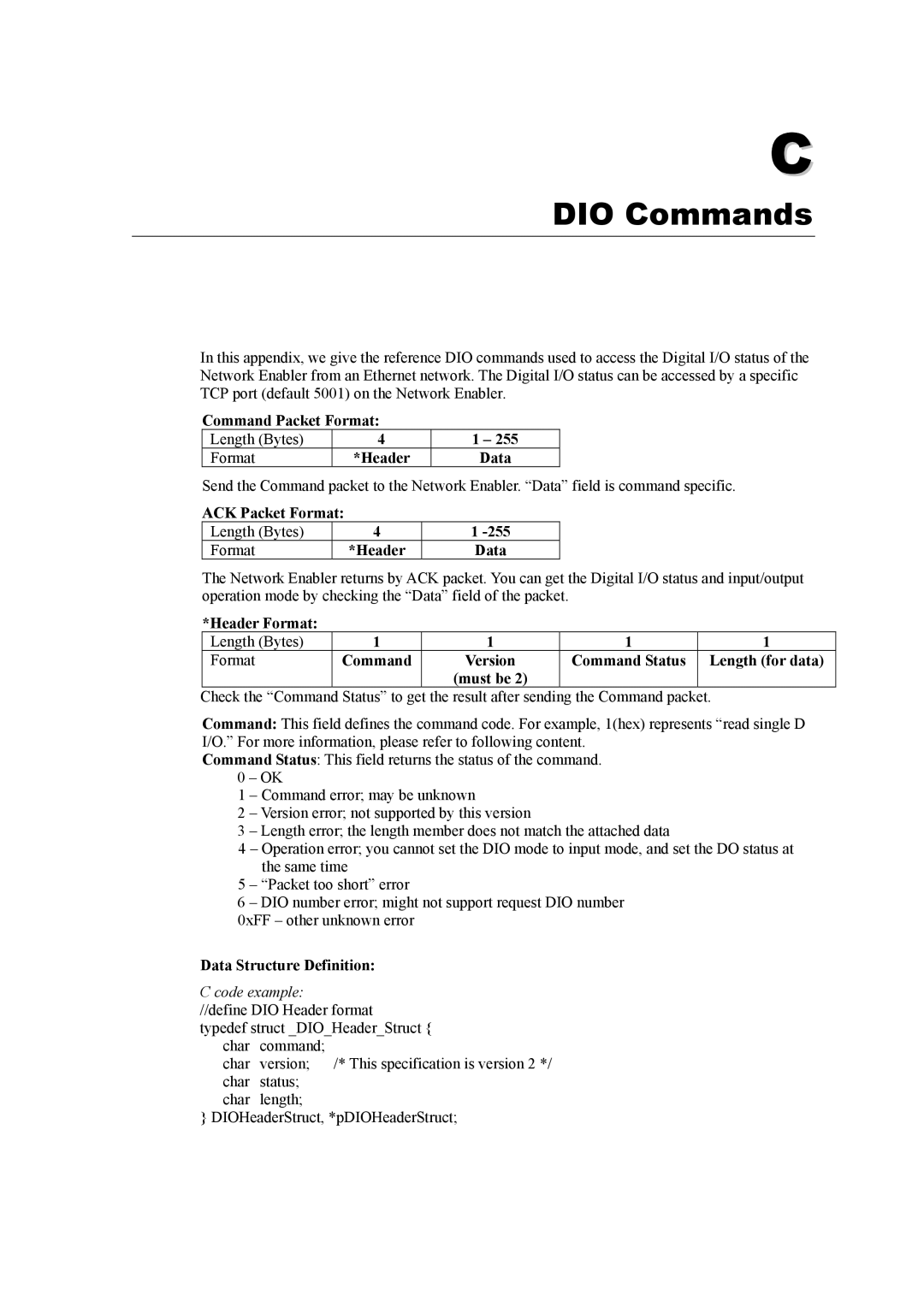C
DIO Commands
In this appendix, we give the reference DIO commands used to access the Digital I/O status of the Network Enabler from an Ethernet network. The Digital I/O status can be accessed by a specific TCP port (default 5001) on the Network Enabler.
Command Packet Format:
Length (Bytes) | 4 | 1 – 255 |
Format | *Header | Data |
Send the Command packet to the Network Enabler. “Data” field is command specific.
ACK Packet Format:
Length (Bytes) | 4 | 1 |
Format | *Header | Data |
The Network Enabler returns by ACK packet. You can get the Digital I/O status and input/output operation mode by checking the “Data” field of the packet.
*Header Format:
Length (Bytes) | 1 | 1 | 1 | 1 |
Format | Command | Version | Command Status | Length (for data) |
|
| (must be 2) |
|
|
Check the “Command Status” to get the result after sending the Command packet.
Command: This field defines the command code. For example, 1(hex) represents “read single D I/O.” For more information, please refer to following content.
Command Status: This field returns the status of the command. 0 – OK
1 – Command error; may be unknown
2 – Version error; not supported by this version
3 – Length error; the length member does not match the attached data
4 – Operation error; you cannot set the DIO mode to input mode, and set the DO status at the same time
5 – “Packet too short” error
6 – DIO number error; might not support request DIO number 0xFF – other unknown error
Data Structure Definition:
C code example:
//define DIO Header format
typedef struct _DIO_Header_Struct {
char | command; |
char | version; /* This specification is version 2 */ |
char | status; |
char | length; |
} DIOHeaderStruct, *pDIOHeaderStruct;
